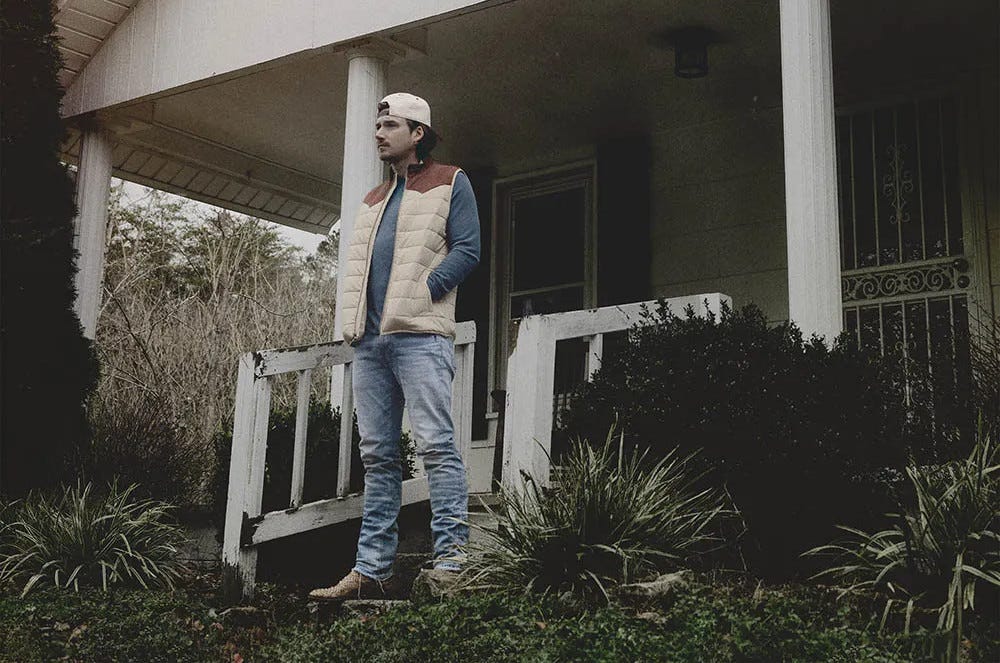‘Last Night’ by Morgan Wallen: The Algorithm is Winning
It’s a great song, but it’s also a song that could have been written by a robot.

I’m not exactly known for my musical expertise; I’m an amateur guitarist who dicks around with a fake rock band that sounds like something 1993 vomited up on an old crinkly VHS tape (and I’m damned proud of those riffs and licks, dude), but no one pays me to bloviate about music1. But every now and I then I have a thought about the pop music landscape and since you made the mistake of legitimizing this platform for me you now get to read it2.
As I write this, the number one song in the country is “Last Night” by Morgan Wallen, who has apparently apologized enough for casually using a racial epithet to be back in our hearts and minds. I don’t have much to say about Wallen as an artist or a person, and I’m by no means a huge country music fan3. And I’m not here to shit on the song—“Last Night” is a pretty good song! I like it well enough; there’s something nicely propulsive about the melody that makes you feel like you’re being gently pushed along by some invisible energy4.
What caught my ear about “Last Night” is how algorithmic it sounds: This is one of several recent songs that sounds like it was pieced together from SEO data points.
Why You Always in a Mood?
Now, I’m not arguing that every song sounds the same or some similar Boomer bullshit5. There’s still plenty of innovation and creativity in pop music. But there have always been folks who have tried to make a formula and crack the case of making hit-writing a sure thing, and I think there’s a whole new approach to this going on6.
I’m thinking about some recent big hit songs like “Mood” by 24kGoldn or “Bad Habit” by Steve Lacy. Both songs I like and enjoy, so again, I’m not trying to make out that these are bad songs or anything. But there’s a similarity to the songwriting approach that links up with “Last Night.” All of these songs are built around repetitive guitar or synth riffs that spiral around and around throughout the entire song. The lyrical progression circles around and repeats as well, and there’s no clear division between the verses and the chorus. The effect is that propulsiveness I was talking about above; the feeling that you’re being carried along by the song because there are no stopping points. It just smoothly goes from moment to moment, with each lyric slotting into the next like a hook into an eye.
What’s interesting to me is how this approach can clearly be used in a wide range of genres. Allen’s song is ostensibly country, but ... is it? There have always been songs that are country solely due to the presence of a mix-buried banjo or fiddle in there, of course, augmented by the Jack-and-Coke drawl of the singer’s voice7. But if you replaced Allen’s voice on “Last Night” with a singer working a different genre this could just as easily be a rock song, or a pop song.
I Write the Songs the Humans Like to Sing
“Last Night” has four credited songwriters, which is pretty par for the course these days unless your name is Taylor Swift. And there’s nothing wrong with having several songwriters, but the similarity of approach here speaks towards an algorithmic approach, a formula. Which, again, happens; music is math, after all, and when you find an equation that gives the results you’re looking for it’s tempting to just change the variables a bit and try to pump out slight variations on a theme that all sell millions of copies8.
The difference today, of course, is that instead of a bunch of stoned assholes trying to find the next hit song, it’s entirely possible an artificial intelligence could be involved. It’s not crazy to imagine someone feeding “Mood” into an AI and asking it to write a wholly original song that manages to draft on that song’s, er, mood and vibe, arrangement and structure, sound and feel. I’m not saying that this is what’s happened with any of the songs I’ve mentioned here—in fact, with four listed songwriters I’m pretty sure AI wasn’t involved. But it’s possible, and from now on we’re going to have to be very suspicious of songs that take a similar approach to other hits9.
Personally, I look forward to the days when you can pop up an app and have it write a brand new Beatles song that actually sounds like a Beatles song. Having that app write a new Avery Cates novel that reads like an Avery Cates novel? Not so much10.
Next week: Fall fails to hide the sausage.
<ominous voiceover> Yet.
There’s no bigger mistake you can make at a party than affecting any sort of interest in the ridiculous things I say. I will keep you there all night, then follow you home.
This is possibly due to the fact that when I was a kid, my father would often drunkenly put on a Waylong Jennings Best Of 8-track and then pass out, so I would lay in bed and hear the faint sounds of Luckenbach, Texas (Back to the Basics of Love) for several hours at a time.
Or maybe that’s the whiskey talking. Okay, no ‘maybe’ about it. Wheeee!
If I was 15 years older, Boomer Bullshit would 100% be the title of my memoir.
Lord knows I’ve been trying to train my 5 cats to write hit novels for years. Progress is … slow. Possibly because I have also taught them to love whiskey.
Also, lyrics that are just a recitation of culture-war iconography: Pickup trucks, dirt roads, farms, guns, and a recursive love of country music.
When The Kinks realized people liked the power chords of You Really Got Me, for example, they straight-up duplicated the song with All Day and All of the Night. And AC/DC’s been mining an A5-G5-D5 progression on literally every song for decades.
Also, globally-connected supercomputer networks with the ability to launch thermonuclear weapons, which I hope would be obvious, but science fiction tells me otherwise.
Unless I’m still getting paid for it, in which case, carry on and pass the beer nuts.




The Kinks Jeff, The Kinks? I grimly shake my head.